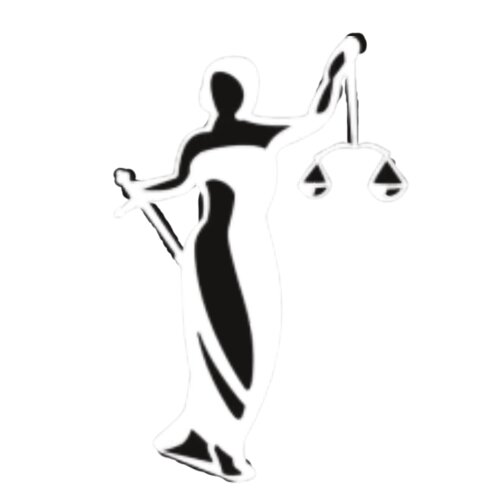Best Antitrust Litigation Lawyers in Newport Beach
Share your needs with us, get contacted by law firms.
Free. Takes 2 min.
List of the best lawyers in Newport Beach, United States
About Antitrust Litigation Law in Newport Beach, United States
Antitrust litigation involves legal disputes concerning business practices that may unfairly restrict competition in the marketplace. In Newport Beach, United States, antitrust laws exist to promote fair competition, protect consumers, and prevent monopolistic or anti-competitive behavior among businesses. These laws are enforced on both federal and state levels, and violations can lead to substantial penalties, civil damages, and reputational harm for those involved. Typical cases may address issues such as price fixing, market allocation, monopolization, or illegal mergers. Whether you are a business facing an investigation or an individual or company harmed by anti-competitive conduct, understanding antitrust litigation is crucial.
Why You May Need a Lawyer
Antitrust litigation is a highly specialized area of law. There are several situations where legal advice may be essential:
- Your business is accused of participating in price fixing, bid rigging, or other anti-competitive practices.
- You suspect competitors are engaging in unfair practices that harm your business or restrict your ability to compete.
- You are facing a government investigation from federal or state bodies regarding compliance with antitrust laws.
- Your company is considering a merger or acquisition that might raise antitrust concerns.
- You wish to file a lawsuit for damages suffered due to another party's monopolistic or anti-competitive actions.
Local Laws Overview
Antitrust laws affecting Newport Beach businesses and individuals are mainly governed by both federal statutes, such as the Sherman Antitrust Act and the Clayton Act, and California state laws under the Cartwright Act and the Unfair Competition Law. The California Attorney General's office plays an active role in investigating and enforcing antitrust laws, alongside federal agencies like the Department of Justice Antitrust Division and the Federal Trade Commission.
Key aspects relevant to Newport Beach include:
- The Cartwright Act prohibits agreements among competitors to restrain trade, fix prices, or form monopolies within California.
- The Unfair Competition Law broadly covers any business practice deemed unlawful, unfair, or fraudulent.
- Private parties in California may file lawsuits for both damages and injunctive relief if they have been harmed by anti-competitive conduct.
- California courts often align with federal precedent but have their own interpretations and enforcement priorities under state law.
Frequently Asked Questions
What is antitrust litigation?
Antitrust litigation refers to legal disputes involving claims that a business or group of businesses has engaged in practices that illegally restrict competition, such as price fixing, monopolization, or collusion.
What laws apply to antitrust issues in Newport Beach?
Both federal laws (Sherman Act, Clayton Act) and California state laws (Cartwright Act, Unfair Competition Law) apply to antitrust issues in Newport Beach.
What activities are considered anti-competitive under California law?
Anti-competitive activities may include price fixing, exclusive supply agreements, dividing up customers or territories, bid rigging, monopolistic practices, or other agreements that restrain trade.
Who enforces antitrust laws in Newport Beach?
The United States Department of Justice Antitrust Division, Federal Trade Commission, and the California Attorney General are the primary enforcement agencies.
Can individuals or businesses file private lawsuits for antitrust violations?
Yes, both individuals and businesses that have been harmed by anti-competitive conduct can sue for damages and injunctive relief in both state and federal courts.
What penalties can result from antitrust violations?
Penalties may include treble (triple) damages, injunctions against certain conduct, substantial fines, and, in criminal cases, imprisonment for individuals involved.
Are all business collaborations illegal under antitrust law?
No. Only collaborations that unreasonably restrict competition or have anti-competitive effects are prohibited. Many joint ventures or partnerships are legal if they promote rather than limit competition.
How long does an antitrust case typically take to resolve?
Antitrust cases are complex and may take months or even years to resolve, depending on the facts, parties, and amount of investigation or litigation involved.
Can my business be investigated for antitrust violations even if we are a small company?
Yes. Both small and large businesses can be subject to antitrust investigations and lawsuits if there is evidence of unlawful anti-competitive behavior.
What should I do if I believe I have been harmed by anti-competitive behavior?
Consult with an experienced antitrust attorney. They can evaluate your situation, advise you on the strength of your claims, and guide you through the process of seeking damages or other remedies.
Additional Resources
For further information or assistance related to antitrust litigation in Newport Beach, you may find these resources helpful:
- California Attorney General's Antitrust Division
- United States Department of Justice Antitrust Division
- Federal Trade Commission (FTC) - Bureau of Competition
- Orange County Bar Association - Business Litigation Section
- Local law libraries, such as the Newport Beach Public Library and Orange County Law Library
Next Steps
If you believe you are involved in or affected by an antitrust issue in Newport Beach, consider taking the following actions:
- Document all facts, contracts, communication, and other evidence relating to your concerns.
- Research the basics of antitrust laws relevant to your situation.
- Contact a qualified antitrust litigation attorney in Newport Beach to obtain legal advice tailored to your circumstances.
- Prepare questions and concerns in advance of your consultation to make the most of your meeting.
- Follow your attorney's guidance regarding interactions with other parties, government agencies, or the court.
Lawzana helps you find the best lawyers and law firms in Newport Beach through a curated and pre-screened list of qualified legal professionals. Our platform offers rankings and detailed profiles of attorneys and law firms, allowing you to compare based on practice areas, including Antitrust Litigation, experience, and client feedback.
Each profile includes a description of the firm's areas of practice, client reviews, team members and partners, year of establishment, spoken languages, office locations, contact information, social media presence, and any published articles or resources. Most firms on our platform speak English and are experienced in both local and international legal matters.
Get a quote from top-rated law firms in Newport Beach, United States — quickly, securely, and without unnecessary hassle.
Disclaimer:
The information provided on this page is for general informational purposes only and does not constitute legal advice. While we strive to ensure the accuracy and relevance of the content, legal information may change over time, and interpretations of the law can vary. You should always consult with a qualified legal professional for advice specific to your situation.
We disclaim all liability for actions taken or not taken based on the content of this page. If you believe any information is incorrect or outdated, please contact us, and we will review and update it where appropriate.











